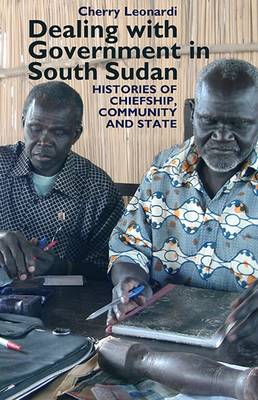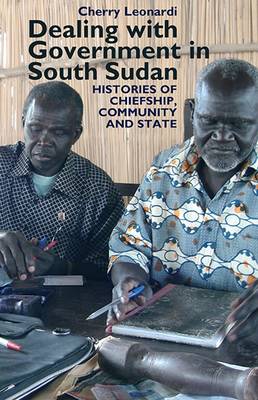
Bedankt voor het vertrouwen het afgelopen jaar! Om jou te bedanken bieden we GRATIS verzending (in België) aan op alles gedurende de hele maand januari.
- Afhalen na 1 uur in een winkel met voorraad
- In januari gratis thuislevering in België
- Ruim aanbod met 7 miljoen producten
Bedankt voor het vertrouwen het afgelopen jaar! Om jou te bedanken bieden we GRATIS verzending (in België) aan op alles gedurende de hele maand januari.
- Afhalen na 1 uur in een winkel met voorraad
- In januari gratis thuislevering in België
- Ruim aanbod met 7 miljoen producten
Zoeken
€ 177,45
+ 354 punten
Uitvoering
Omschrijving
South Sudan became Africa's newest nation in 2011, following decades of armed conflict. Chiefs - or 'traditional authorities' - became a particular focus of attention during the international relief effort and post-war reconstruction and state-building. But 'traditional' authority in South Sudan has often been misunderstood to be a timeless or 'non-state' institution. This book argues for the mutual constitution of chiefship and the state since the mid-nineteenth century. By examining the long-term history of chiefship in the vicinity of three towns, it argues for a new approach to the history of urbanisation and local state formation in South Sudan. It also addresses a significant paradox in African studies more widely: if chiefs were the product of colonial states, why have they survived or revived in recent decades?
Specificaties
Betrokkenen
- Auteur(s):
- Uitgeverij:
Inhoud
- Aantal bladzijden:
- 271
- Taal:
- Engels
- Reeks:
- Reeksnummer:
- nr. 16
Eigenschappen
- Productcode (EAN):
- 9781847010674
- Verschijningsdatum:
- 20/06/2013
- Uitvoering:
- Hardcover
- Formaat:
- Genaaid
- Afmetingen:
- 145 mm x 223 mm
- Gewicht:
- 612 g

Alleen bij Standaard Boekhandel
+ 354 punten op je klantenkaart van Standaard Boekhandel
Beoordelingen
We publiceren alleen reviews die voldoen aan de voorwaarden voor reviews. Bekijk onze voorwaarden voor reviews.









